Lynette White: Tony Paris, one of Cardiff Three, dies
- Published
'They're just going to get away with it', said Mr Paris about the police who wrongly put him behind bars for four years
Tony Paris, one of the three men wrongly convicted of the 1988 murder of Cardiff woman Lynette White, has died.
Mr Paris, Yusef Abdullahi and Stephen Miller, who became known as the "Cardiff Three", were jailed in 1990 but cleared at the Court of Appeal.
The real murderer, Jeffrey Gafoor, was convicted in 2003.
On Sunday, Mr Paris' family confirmed he had died, aged 65. His daughter said she would continue to raise awareness and fight for those who face injustice.
She tweeted: "I can't believe I'm writing this.. My dad Anthony (Tony) Paris has sadly passed. Anyone who knows me knows my dad is everything to me. It was me and him against the world. I will continue to raise awareness and fight for those who face injustice in his name. I love you dada!"
Allow X content?
This article contains content provided by X. We ask for your permission before anything is loaded, as they may be using cookies and other technologies. You may want to read X’s cookie policy, external and privacy policy, external before accepting. To view this content choose ‘accept and continue’.

A subsequent inquiry into the original investigation led to the UK's biggest-ever police corruption trial.
Eight former South Wales Police detectives were found not guilty when the trial collapsed midway through due to disclosure failings.
The campaign to free the men by the Butetown community gained international recognition.
Campaigners raised particular concerns over the way a confession was taken from Ms White's boyfriend, Steve Miller.
The campaign gained momentum and two years after the three were sentenced, the Court of Appeal ruled that a gross miscarriage of justice had taken place.
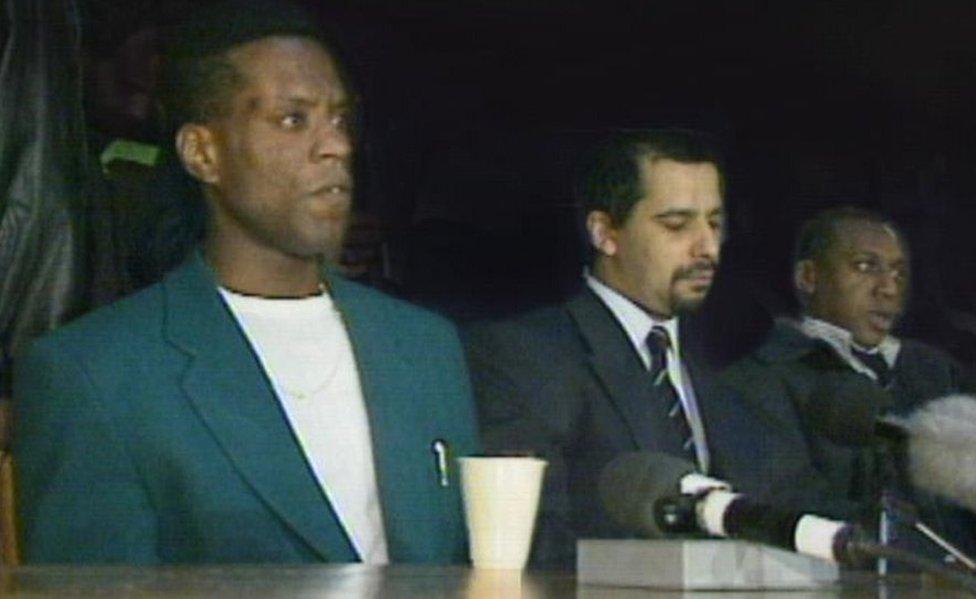
The Cardiff Three: Stephen Miller, Yusef Abdullahi who died in 2011, and Tony Paris
In 1992 the convictions of the three jailed men were quashed and they were freed.
Mr Paris lost his father just weeks before he was freed by the appeal court in 1992.
Mr Abdullahi died in 2011, aged 49.
Last year, former Chief Constable of South Wales Police, Matt Jukes, said the men should be recognised as victims and he was "sorry for the effect on their lives".
Speaking during a special BBC documentary last year about the case, Mr Paris said: "It's important, 30 years down the line, because although we've had apologies before, now the whole world can see we are innocent and we are victims."
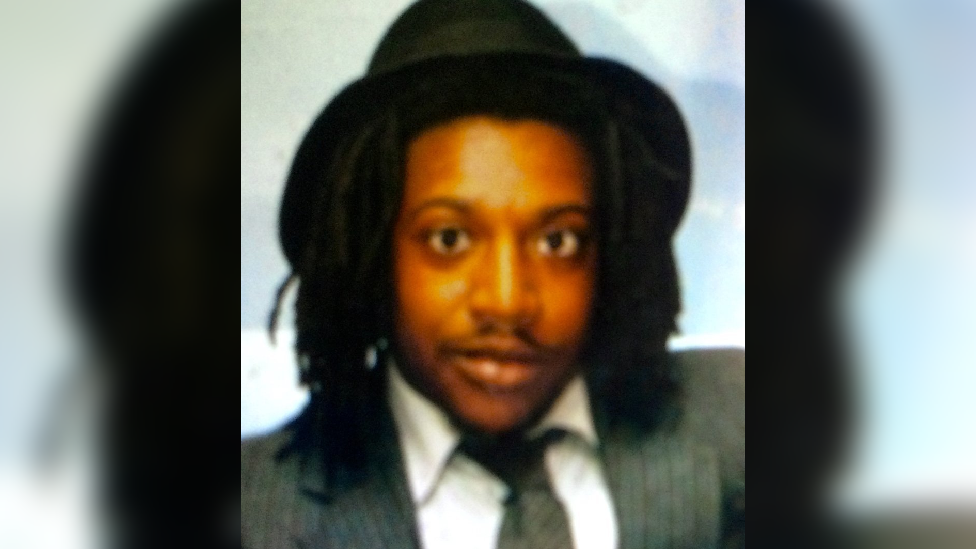
Tony Paris, who worked in the steel industry and as a club doorman, in a photograph taken a few years before he was arrested
John Actie, who was also wrongly accused but cleared by the jury, said: "He was he was a character. He was a good guy.
"But underneath, he was suffering a lot of trauma. He was convicted. He was sent to a prison up in London, he'd never been to prison before.
"It's just hurtful that he's gone so early."
Mr Paris's nephew Michael, said his uncle had changed by the time he was acquitted.
"He was a completely different person," Mr Parris said, describing him previous as "happy-go-lucky".
"He spent most of his time as a recluse.
"He constantly used to talk about having nightmares about what happened, he was very, very depressed and he had a lot of mental health issues.
"He didn't attend any family functions. We always have a family barbecue yearly and I think he attended one because he did not feel comfortable being around a lot of people."
Ceri Jackson, creator and producer of the BBC Wales podcast Shreds: Murder in the Dock, which is about the fight for justice of the Cardiff Three, said she would remember Mr Paris as "a man of immense dignity".
"He was a gentle character who maintained a kind of sense of fun right up until the end, he had immense grace considering what happened to him, and he was an adored father of four," she told BBC Radio Wales Breakfast.
"On the surface he would always be Tony, smiling and considering everybody else's feelings, but he was immensely damaged by what had happened to him, and certainly after he came out of jail he was a reclusive character.
"He'd gone from a fun-loving guy about town to one that really couldn't go out without enduring a huge amount of stress."
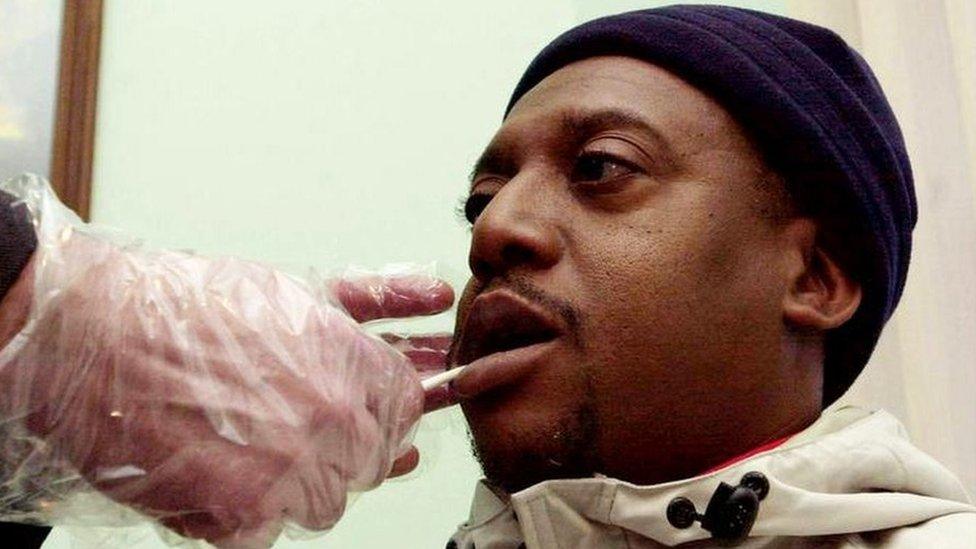
Tony having a swab taken by South Wales Police in a bid to end his link with the murder, just months before the real killer was arrested
She added Mr Paris was known to police before his arrest but in a very casual way. He had a couple of shoplifting convictions and a car fine, she said, but was not a criminal in the true sense of the word.
"He was known for avoiding trouble, if there was ever a danger of a fight Tony would try and calm it down, and try and make himself scarce because he wasn't a trouble maker - that just wasn't part of his character."
The story of the Cardiff Three is told in the BBC documentary A Killing In Tiger Bay, which is available on BBC iPlayer.
- Published9 September 2021
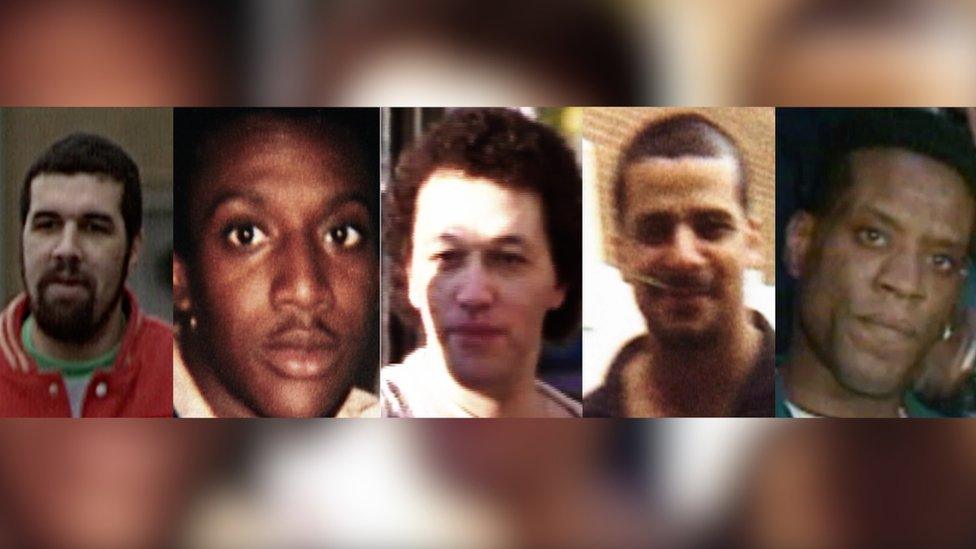
- Published13 April 2016
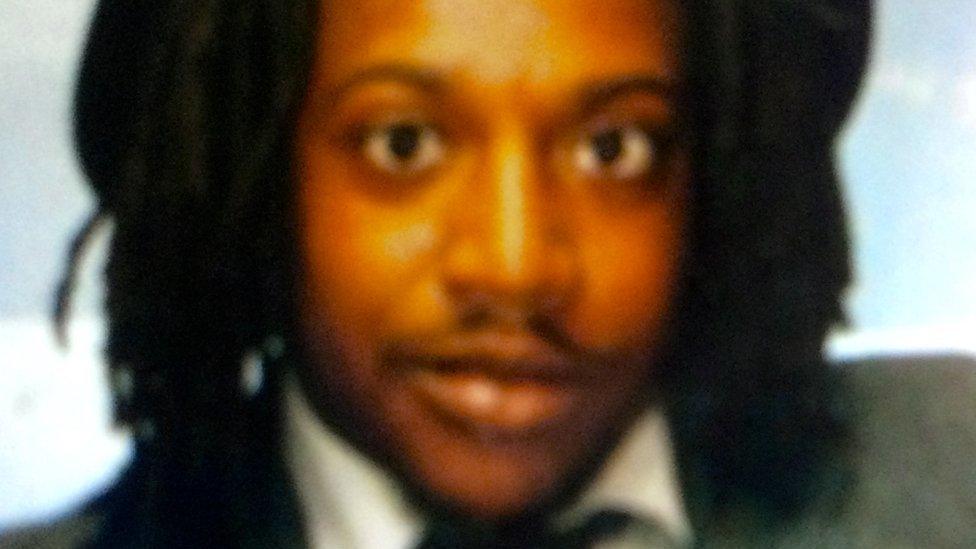
- Published29 September 2020
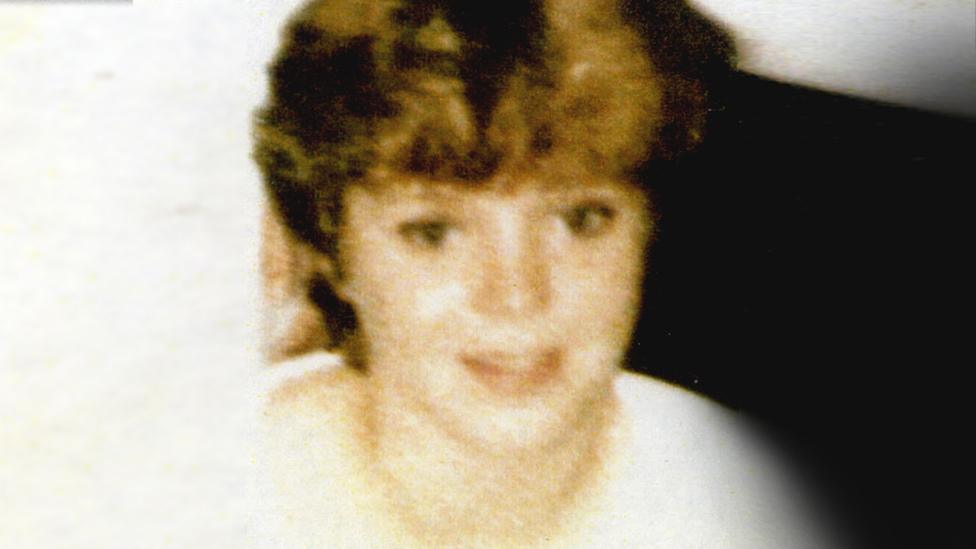
- Published25 January 2011